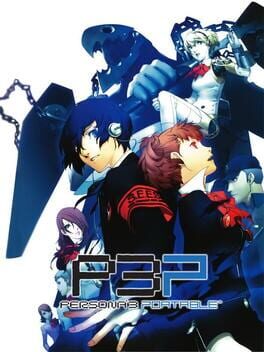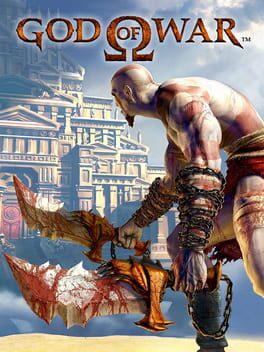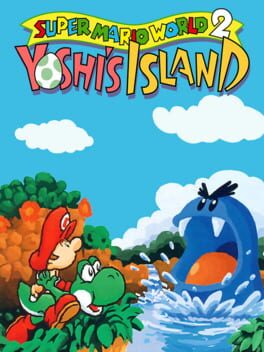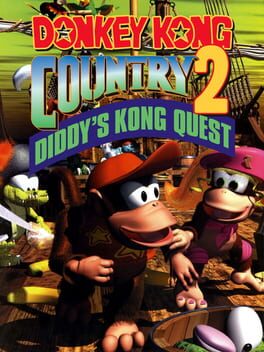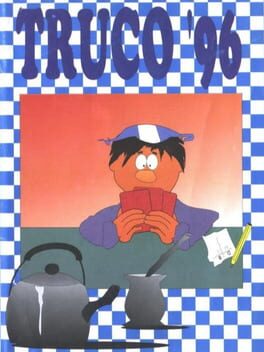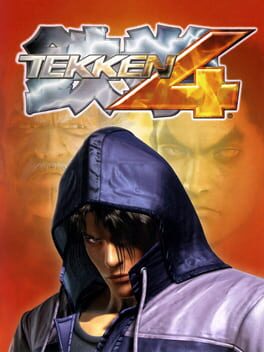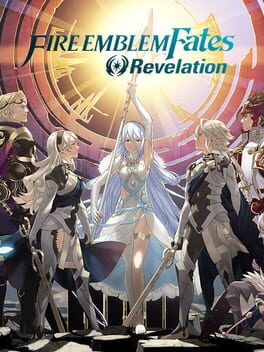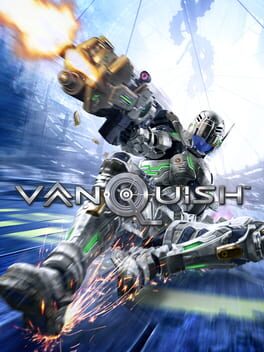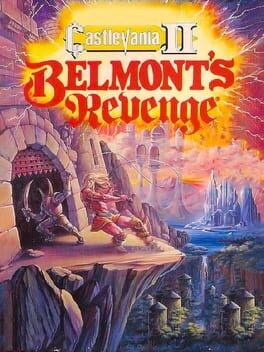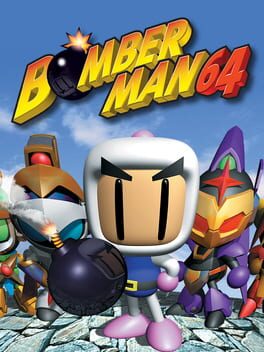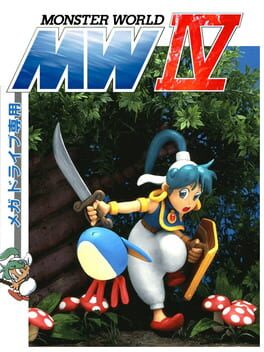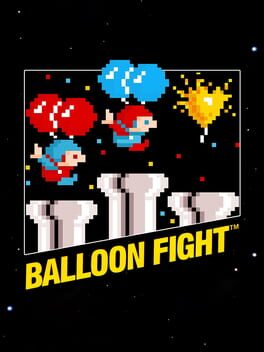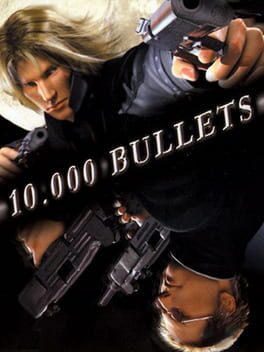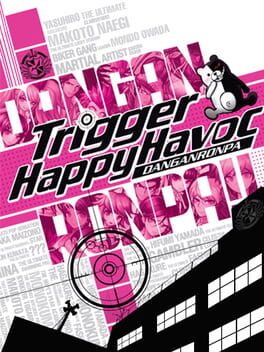2416 Reviews liked by Ardwyw_mp3
Persona 3 Portable
2009
God of War
2005
A melting pot of a game that influenced subsequent action games. Unlike those, this one managed to pick the right dose of every of its parts, and scatter them the right way so that none of them exposed their repetitiveness.
Also, the series seemed to forget the subtleties of this game's combat mechanics, specially regarding the QTEs. They were largely seen as the coward option in this game, not only giving you a breather from adjacent attacks but also depriving you from getting extra red orbs in certain cases.
Some quick time events did offer you more orbs than normal, but they were balanced out by either letting enemies hit you while doing them, or through the brutal death bonus, which obblied you to have a combo superior to 10 or 25 hits to have a slight red orb bonus when doing a QTE.
This, joined to the fact that you have to optimize your red orb count a lot in this game (most runs end up without all weapons getting maximized) was a constant tension of using the easy way out of a battle or risking more.
The sequels dumbed this down through the orb multiplier system in each difficulty and basically rewarding you more for only going for QTEs.
Also, the series seemed to forget the subtleties of this game's combat mechanics, specially regarding the QTEs. They were largely seen as the coward option in this game, not only giving you a breather from adjacent attacks but also depriving you from getting extra red orbs in certain cases.
Some quick time events did offer you more orbs than normal, but they were balanced out by either letting enemies hit you while doing them, or through the brutal death bonus, which obblied you to have a combo superior to 10 or 25 hits to have a slight red orb bonus when doing a QTE.
This, joined to the fact that you have to optimize your red orb count a lot in this game (most runs end up without all weapons getting maximized) was a constant tension of using the easy way out of a battle or risking more.
The sequels dumbed this down through the orb multiplier system in each difficulty and basically rewarding you more for only going for QTEs.
La secuela al peor Mario de la línea principal pone como protagonista al dinosaurio que empeora todos los juegos en los que hace acto de presencia, desenfatiza las plataformas, reduce el desafío al mínimo y centra su principal baza en la búsqueda de coleccionables (que no os engañen, nada tiene que ver con exploración). Resultado: para lo que podría haber sido, sorprende su decencia.
Parece responder a la pregunta: ¿hasta qué punto puedes hacer divertido un plataformas 2D sin exigencia? Miyamoto dejó una nota de papel con algo escrito: "tener que prestar atención a mas de una cosa a la vez".
Aquí no es Yoshi el que corre de nosotros cuando nos golpean, sino el bebé Mario, que vuela por la pantalla en su burbuja. Lo que era un detalle divertido en World es ahora la mecánica central con todo el derecho del mundo. La cosa va de proteger al niño en un entorno de pintura infantil correspondiente a la edad que se espera del jugador. Todo es blandito, pegajoso y hace puf. Está pidiendo a gritos el deslizamiento por pendientes de SMB3 pero por lo demás es muy agradable al tacto.
Parece responder a la pregunta: ¿hasta qué punto puedes hacer divertido un plataformas 2D sin exigencia? Miyamoto dejó una nota de papel con algo escrito: "tener que prestar atención a mas de una cosa a la vez".
Aquí no es Yoshi el que corre de nosotros cuando nos golpean, sino el bebé Mario, que vuela por la pantalla en su burbuja. Lo que era un detalle divertido en World es ahora la mecánica central con todo el derecho del mundo. La cosa va de proteger al niño en un entorno de pintura infantil correspondiente a la edad que se espera del jugador. Todo es blandito, pegajoso y hace puf. Está pidiendo a gritos el deslizamiento por pendientes de SMB3 pero por lo demás es muy agradable al tacto.
After stepping out of the first area, you make your first steps onto Crocodile Island, and a landscape of lava unfolds. Bubbles sprout from the lake of fire, and rivers of magma fall from mountains in the background while David Wise's Hot Head Bop sounds in the background. You can hear everything happening around you.
I wouldn't fixate so much in the presentation but Rare did achieve something quite singular beyond realistic-looking scenery. It is a combination of both aesthetically inspired work and sound design that makes the levels have a breathing presence, almost a world-like feeling even, that still resonates to this day.
It's clearly where the efforts went though because once you pick the controller you remember you are playing yet another video game sequel. More to collect to make the player explore, new vertical levels to add variety, new obstacles to face to justify making another game. Yet at the end, more distractions from the main action, more haphazardly introduced content.
Note: If you decide to play this game, you really should do it on an old TV (or the closest you can find to that). It really isn't the same on emulation. The TV blur dissipates the two-dimensional layers to add more texture to the landscape, and the game was designed that way. This is lost in emulation and feels very awkward instead.
I wouldn't fixate so much in the presentation but Rare did achieve something quite singular beyond realistic-looking scenery. It is a combination of both aesthetically inspired work and sound design that makes the levels have a breathing presence, almost a world-like feeling even, that still resonates to this day.
It's clearly where the efforts went though because once you pick the controller you remember you are playing yet another video game sequel. More to collect to make the player explore, new vertical levels to add variety, new obstacles to face to justify making another game. Yet at the end, more distractions from the main action, more haphazardly introduced content.
Note: If you decide to play this game, you really should do it on an old TV (or the closest you can find to that). It really isn't the same on emulation. The TV blur dissipates the two-dimensional layers to add more texture to the landscape, and the game was designed that way. This is lost in emulation and feels very awkward instead.
Truco '96
1995
Tekken 4
2001
Customer #1 : [At Marshall Law's restaurant he owns] Man, the food here sucks!
Customer #2 : We have to pay for this?
Marshall Law : [Walks over] What did you just say?
Customer #1 : [Pounds the table] You heard me, I said this food sucks! You expect us to eat this stuff?
Marshall Law : What do you mean it sucks?
Customer #1 : This pepper beef is too damn spicy!
Marshall Law : [Punches the customer and taste tests the beef] What are you talking about? This is good!
[Customer walks up behind Law and smashes a bottle over his head]
Marshall Law: You...
[Fight breaks out]
[Cut to a newspaper clip, with a headline stating "Marshall China Goes Out of Business"]
[Martial arts students yelling in time with punches]
Marshall Law: [Training his students at a dojo] No, no, no. Put more anger into it! [Enthusiastic grunting and punching]
[Students yell in time with punches as before, but more enthusiastically]
Marshall Law: [Panning shot revealing that the dojo is located where his now closed restaurant used to be] Yeah! That's more like it! Now lower your stance a bit more, and...
[Chinese gong]
Customer #2 : We have to pay for this?
Marshall Law : [Walks over] What did you just say?
Customer #1 : [Pounds the table] You heard me, I said this food sucks! You expect us to eat this stuff?
Marshall Law : What do you mean it sucks?
Customer #1 : This pepper beef is too damn spicy!
Marshall Law : [Punches the customer and taste tests the beef] What are you talking about? This is good!
[Customer walks up behind Law and smashes a bottle over his head]
Marshall Law: You...
[Fight breaks out]
[Cut to a newspaper clip, with a headline stating "Marshall China Goes Out of Business"]
[Martial arts students yelling in time with punches]
Marshall Law: [Training his students at a dojo] No, no, no. Put more anger into it! [Enthusiastic grunting and punching]
[Students yell in time with punches as before, but more enthusiastically]
Marshall Law: [Panning shot revealing that the dojo is located where his now closed restaurant used to be] Yeah! That's more like it! Now lower your stance a bit more, and...
[Chinese gong]
ActRaiser
1990
So, you're God. No work-arounds, you're simply God, and you take care of your people and your creation. People go to the temple to revere you and give you offerings that help you. People's faith strengthens you.
At the end of the game, once you're finished with your work and have defeated evil, people stop visiting temples. Why? Because they don't need you anymore. The game reveals itself as a bitter allegory of people's relationship with religion, a very common theme in Quintet's games in the 90s.
ActRaiser utilizes God simulation mechanics to make the player a direct participant in creation to form a bond to the people that have faith in you and make the finale more resonant.
At the end of the game, once you're finished with your work and have defeated evil, people stop visiting temples. Why? Because they don't need you anymore. The game reveals itself as a bitter allegory of people's relationship with religion, a very common theme in Quintet's games in the 90s.
ActRaiser utilizes God simulation mechanics to make the player a direct participant in creation to form a bond to the people that have faith in you and make the finale more resonant.
How do you tell a story about the dilemma of adoptive and biological family? Easy! Just let the player escape from all their problems, and give them a pat in the back. Because everyone will receive you with open arms after you betrayed their love. Everyone will accept your shitty decisions as if nothing had happened, and in fact the game will congratulate you for running away, because doing so is THE ZOMG TRUE GOLDEN ENDING!
But the world doesn't work that way. Your decisions have consequences. People get hurt. It's not the fault of some weird invisible dragon that conspires against your universe.
And the worst part, Intelligent Systems, is that you didn't do it because you believe in neutrality or equality. You did so because you wanted the player to bang everyone. You wanted the player to feel cool.
Intelligent Systems, do you remember when Marth had to put a face to his people to hide the pain he felt for the loss of his family? When Alm cried after he realized what he had done to his father? When Seliph and Leif went through a holy war to restore the tainted name of their families? Do you remember when there were heroes and being responsible to your family mattered?
People have complained about this game, about its garbage level design, about its story worthy of a fanfiction, but never at the contempt of its heart. And people have also defended this game, because "yooo, psycho, story doesn't matter in Fire Emblem". Okay, if you think that what you're watching on screen is acceptable and can be ignored, if you want to be complicit, you do you.
But the world doesn't work that way. Your decisions have consequences. People get hurt. It's not the fault of some weird invisible dragon that conspires against your universe.
And the worst part, Intelligent Systems, is that you didn't do it because you believe in neutrality or equality. You did so because you wanted the player to bang everyone. You wanted the player to feel cool.
Intelligent Systems, do you remember when Marth had to put a face to his people to hide the pain he felt for the loss of his family? When Alm cried after he realized what he had done to his father? When Seliph and Leif went through a holy war to restore the tainted name of their families? Do you remember when there were heroes and being responsible to your family mattered?
People have complained about this game, about its garbage level design, about its story worthy of a fanfiction, but never at the contempt of its heart. And people have also defended this game, because "yooo, psycho, story doesn't matter in Fire Emblem". Okay, if you think that what you're watching on screen is acceptable and can be ignored, if you want to be complicit, you do you.
Vanquish
2010
Bomberman 64
1997
Monster World IV
1994
Balloon Fight
1985
10,000 Bullets
2005
Muchas veces me pasa que cuando disfruto mucho de algo el sentimiento se manifiesta en los sueños.
Este juego es un ejemplo fantástico. Soñé que era un gunslinger como Crow y estaba rodeado de enemigos.
La gravedad y el tiempo funcionaban de una manera extraña. Yo solo interpretaba mi mejor papel.
Eniwei, todo el mundo andaba disparando con acrobacias mientras sonaba algo muy parecido a One Note Blues.
Vivan los sueños.
Este juego es un ejemplo fantástico. Soñé que era un gunslinger como Crow y estaba rodeado de enemigos.
La gravedad y el tiempo funcionaban de una manera extraña. Yo solo interpretaba mi mejor papel.
Eniwei, todo el mundo andaba disparando con acrobacias mientras sonaba algo muy parecido a One Note Blues.
Vivan los sueños.
This story of ‘Ultimates’ falls somewhere between melodrama and allegory, and it mostly works. That is, until it decides to explain every mystery and human motivation in excruciating detail.
Danganronpa just doesn’t know what to do with its narrative extremes. The shocks come so regularly they bore, and the conservative mechanics can’t keep up. Schlepping down hallways, clicking on clues, mini-gaming each trial – the game settles into rhythms that are already stale by the second murder.
And it goes on so very long. A 5-hour story stretched over a 25-hour game. This must be what they mean by ‘Ultimate Despair’.
Danganronpa just doesn’t know what to do with its narrative extremes. The shocks come so regularly they bore, and the conservative mechanics can’t keep up. Schlepping down hallways, clicking on clues, mini-gaming each trial – the game settles into rhythms that are already stale by the second murder.
And it goes on so very long. A 5-hour story stretched over a 25-hour game. This must be what they mean by ‘Ultimate Despair’.
